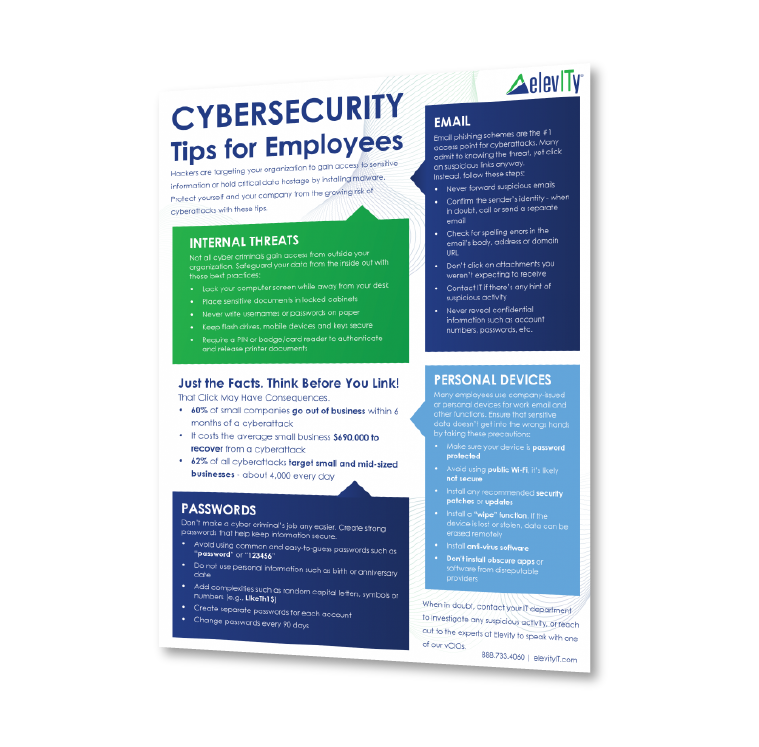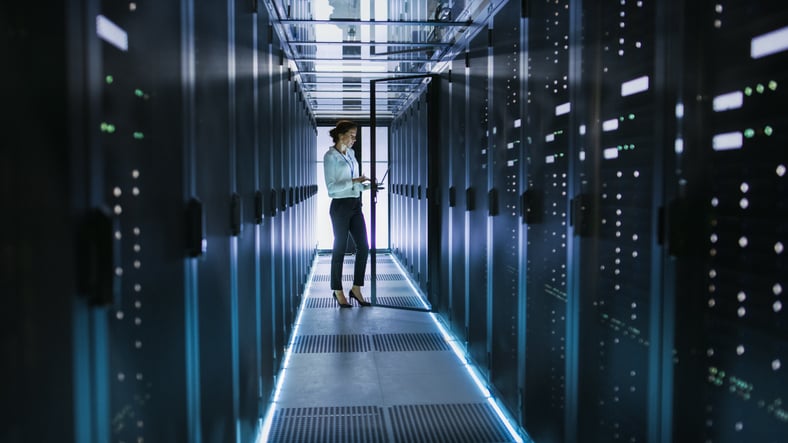Technology is changing faster than ever. From cognitive computing to the advancement of artificial intelligence with ChatGPT, there’s a lot to keep up with! Another newer technology that’s been in the news throughout the past year? Blockchains.
You’ve probably heard about blockchains in relation to Bitcoin, the world’s most popular cryptocurrency. But it’s far more than just a platform for money. Blockchain technology is poised to disrupt many areas of our daily lives – from advertising to voting.
In particular, tech companies and startups are looking for new ways to leverage blockchain technology to deliver and access information securely from anywhere. And that can bring exciting new potential for your business.
Blockchains Defined
A blockchain is a decentralized database stored on multiple computers as identical copies. It’s a global public ledger that can automatically record and verify huge volumes of digital transactions, regardless of location.
Blockchain’s distributed ledger is public, but data is sent and verified with advanced techniques, such as cryptographic problem solving. This ensures data comes from the correct sources and nothing is intercepted in the interim. It’s both transparent and secure.
Because it’s decentralized, no one can change or delete an entry in the blockchain. If someone tried, they’d have to make the same change on every single node in the blockchain. Considering the millions of nodes comprising the blockchain, trying to change every single one is basically impossible. That’s one security aspect of blockchains that’s just a natural part of this new tech.
The applications of blockchain are nearly limitless. It has the potential to change:
- Ads you see while browsing the internet
- The process of leasing a car
- How we share music and other intellectual property
- Buying and selling real estate
- How you access your medical records
- The use of gift cards and loyalty programs
- The accuracy of credit histories and reports
- Public services and public records access
- How you shop
- Video streaming
- …and much more
There are two types of blockchain: public blockchains and private blockchains. As the name suggests, public blockchains can be accessed by anyone. Bitcoin is an example of a public blockchain. Private blockchains, on the other hand, can only be accessed by authorized members or users.
Blockchains: Building the Future of IT
Let’s look at a few ways blockchain technology is transforming the IT industry.
Internet identity & DNS
These days, it’s time-consuming having to prove your identity on the web. Even using Facebook to log in to various sites only gets you so far. What if you could easily carry your identity with you all around the internet? Companies like Blockstack and Serto are developing ways to make user data more portable.
Cloud Storage
Data stored in the cloud often lives in a centralized server, which can be vulnerable to cyberattacks. However, blockchain cloud-storage solutions keep data in a decentralized network, making it less prone to attacks.
Critical Infrastructure Security
Crucial networks controlling things like power plants and transportation are prime targets for hackers. Much of this critical infrastructure is connected via the Internet of Things (IoT). A blockchain’s tamperproof ledgers can share vital security data across these industrial networks. A blockchain can also provide data authentication on a massive scale, verifying transactions.
Industrial Internet of Things (IoT) & Mesh Networking
Companies like IBM and Samsung are developing decentralized networks of IoT devices using blockchain technology. These networks would replace the central hubs that IoT devices currently depend on to connect with one another. Decentralized IoT networks would enable devices to communicate autonomously to manage software updates, bugs or energy management.
Read More: The Importance of a Backup System and Disaster Recovery Solution for Business Data
How Secure is Blockchain Technology?
Even though blockchains offer a new level of security, keep each transaction traceable, and sometimes require user authentication, they’re still not impervious to cyberattacks.
Norton and IBM identify several common vulnerabilities, including:
- Phishing
Blockchains are at risk of malicious parties trying to scam authenticated users out of their credentials by sending phishing emails or other communications that look legitimate.
- Code Exploitation
Someone familiar with blockchain technology or who is an authenticated user could target a vulnerable point within the technology to steal data or assets.
- Routing Attacks
Routing attacks involve the often unnoticeable interception of data by a devious cybercriminal during the course of a blockchain transaction. Money transfers are particularly vulnerable.
- Stolen Private Keys/Credentials
Blockchain users all have unique identifiers or keys, and if they fall into the wrong hands they could be used to access secured information.
- 51% Attacks
Primarily an issue with Bitcoin, if one or more users are able to control just over half of a blockchain’s mining power, it’s theirs for the taking.
This isn’t an exhaustive list of cybersecurity risks for blockchains, so it’s important to remain vigilant just as you would with any other technology.
A Secure Desktop Experience
Whether you’re planning to use blockchain technology or not, security is crucial in today’s world — especially with how many people work remotely. Virtual desktop infrastructure (VDI) has been around for years, giving remote workers access to company assets and the ability to work anywhere. But are they all secure enough to protect your data, technology and blockchain credentials from hackers?
You need to ensure your business isn’t using just any VDI. That’s why we’ve put together a guide, called Advancements in Virtual Desktop Infrastructure (VDI) Technology, that details a premier VDI: Microsoft’s Azure. Click the link below to access your free copy today!





%20cropped.jpg)




